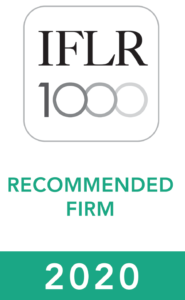
Recent Developments on Attorney-Client Privilege in Turkey
In this article, we would like to share our note regarding the new developments about the limits of attorney-client privilege within the scope of Turkish competition law since a recent court decision on Enerjisa Investigation appears to have important effects in the future of compliance programs in Turkey.
Briefly, it appears that Turkish Competition Board tends to define the limits of the attorney-client privilege narrower than before. Please find a detailed explanation below.
1. General Framework of Attorney-Client Privilege in Turkish Competition Law
There is no specific legal disposition providing the attorney-client privilege within the scope of Turkish Competition Act (i.e. the Act no 4054 on the Protection of Competition). On the other hand, Turkish Competition Board (i.e. the decision-making body of Turkish Competition Authority) submitted in its past decisions (especially in its CNR decision dated 13.10.2009 and numbered 09-46/1154-290) that the attorney-client privilege was provided under Turkish Law (i.e. the Turkish Criminal Procedure Act and the Attorneys’ Act), which is also applicable within the scope of Turkish competition law. Furthermore, the Board, referring to the European Commission’s case law, accepted that the attorney-client privilege is applicable in case where such correspondence/document produced (1) between clients and independent attorneys and (2) within the scope of use of defence rights.
In 2015, the Board examined DOW’s claim on the attorney-client privilege relating to certain documents obtained during a dawn raid and partially accepted DOW’s claim referring to the aforementioned conditions. However, the Board also indicated that it examined the content of such documents obtained in order to find out whether the above mentioned two conditions are cumulatively met.
2. Discussions and Enerjisa Decision
After CNR and DOW decisions, application of the attorney-client privilege within the scope of Turkish competition law has become a hot topic in Turkey since the Board’s practice was not clear, and it was argued that the Board enjoyed a wide decisional freedom in assessing the attorney-client privilege, which may harm undertakings, especially when conducting compliance programs.
Competition watchdogs around the world, like the Turkish Competition Authority, support compliance programs, which normally involve mock dawn raids and reporting of possible risks based on documents obtained during such mock dawn raids. Furthermore, undertakings are also eager to benefit such compliance programs through independent attorneys, knowing that any document obtained by such attorneys and their reporting benefit from the attorney-client privilege, which protect undertakings in case of criminal or administrative investigations. However, the Board’s CNR and DOW decisions opened the door for discussions relating to limits of the attorney-client privilege and especially its application within the scope of competition compliance programs. And in the end of 2016, the Board had the occasion to evaluate use of the attorney-client privilege within the scope of Turkish competition law in an investigation on Enerjisa.
In Enerjisa Investigation, the case handlers specifically examined in-house general counsel of Enerjisa and obtained a competition compliance report prepared by an external counsel. The case handlers obtained such documents in a sealed envelope upon the attorney’s claims on the attorney-client privilege. However, the Board examined the contents of the envelope and decided (in its decision dated 06.12.2016 and numbered 16-42/686-314) that the compliance report which is produced by the external counsel on the basis of the documents obtained after a mock dawn raid could not be considered within the scope of use of defence rights since the opinion in the report did not clearly determine a violation, instead in which cases a violation can be committed by Enerjisa. Therefore, the Board refused Enerjisa’s claim on the attorney-client privilege. Enerjisa initiated an annulment lawsuit against the Board’s decision, and the first instance court (i.e. 15th Administrative Court of Ankara) annulled the Board’s decision accepting Enerjisa’s attorney-client privilege claim. However, upon the Authority’s appeal, the second instance court (i.e. the Regional Court of Ankara) overturned the first instance court’s decision submitting that the compliance report prepared by Enerjisa’s attorneys could not be considered produced within the scope of use of defence rights since the report was not produced as a result of an administrative act (such as an investigation of the Board) or an annulment lawsuit initiated upon an administrative act. Therefore, the Regional Court of Ankara clearly put forth that an undertaking can benefit from the attorney-client privilege on a document within the scope of its defence rights only if such document is prepared after an administrative act (such as a preliminary inquiry or an investigation of the Board) by independent attorneys. The relevant decision of the Regional Court of Ankara was appealed to the Council of State, and the case is still pending.
3. Conclusion
Even though the lawsuit against the Board decision on Enerjisa is still pending before the Council of State, we consider that sharing competition compliance documentation with clients entails high risks from Turkish competition law perspective since such documents prepared by independent attorneys risk benefitting from the attorney-client privilege – meaning that any competition compliance documentation referring to certain risks of an undertaking may be used against such undertaking as evidence if obtained during a dawn raid (or by other means) by the Board.
We would like to note that as independent attorneys, we always prefer acting in prudence to minimize any risk of our clients, and we therefore recommend to our clients not to keep any competition compliance documentation which may point out any current competition law risk at their premises. Please note that an attorney-client privilege is fully applicable only if such compliance documentation is kept by independent attorney under the Turkish Criminal Procedure Act and Attorneys’ Act. Therefore, any other way of use regarding competition compliance documentation may involve risks since such use would fall in the grey area and be open to discussions in case of an administrative or criminal proceeding (such as competition investigation).
Please contact us should you have any queries on the issue.
Att. Ünal Doğan
Palta Attorneys At Law


